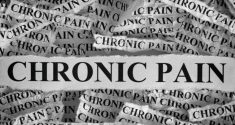Managing pain is one of the greatest challenges to modern medicine. Although opioids and similar narcotic pain medications were once viewed as the answer to this issue, we now know that these do not help in the long term. How can we treat pain effectively and safely? According to new research, sleep is the best painkiller of all of the options available — and the safest as well.
Pain: The Final Frontier in Modern Medicine

However, we now know that narcotic pain medications are often not the best answer. Over long periods of time, the brain and nerves adjust, and the drugs lose their pain-relieving effects. People then need to take increasing amounts to get the same relief. At the same time, these drugs come with a variety of negative side effects.
Most modern pain relievers are addictive and lose effectiveness over a short period of time. In addition, they can have devastating side effects as well as a high risk of overdose and other unwanted events. Doctors and researchers are now searching for new ways to treat pain, particularly chronic pain. According to new research, sleep may play an important role in pain relief.
New Research on Sleep and Pain
Because we are unconscious while sleeping, we do not realize the effects that sleep has on our bodies. We also often overlook the effects that it has on our brains. Our brains build our memories when we are fast asleep. In addition, sleep has been found to have a dramatic effect on our mood and our ability to perform well in cognitive tests.
Researchers at UC Berkeley looked at 25 volunteers. All were in good health, with no sleep disorders and no issues with chronic pain. They exposed these volunteers to targeted heat on their leg and asked them to rate how painful this was on a scale of one to ten. The heat was stopped as soon as the participants reported that it was painful.
The researchers asked some participants to go without sleep for an extended amount of time, while others were encouraged to get plenty of rest. The test was then repeated. People who had been sleep-deprived found the heat painful at a very low level, around 107 degrees Fahrenheit. In many areas, this is the amount of heat one experiences on a typical summer day!
People who had slept well did not perceive the heat as painful until an average of 111 degrees. This is a dramatic difference, suggesting that sleep makes people more resilient in the face of pain and less likely to find stimuli painful when they are well-rested.
In addition, the people who were sleep-deprived showed dramatic differences in their brain activity during the heat stimulus. Sleep-deprived people had more activity in areas of the brain that are related to sensing pain and other uncomfortable stimuli. People who had more sleep had more activity in areas of the brain that decrease pain.
If Sleep Is the Best Painkiller, How Can You Get More Sleep?

In a world where many people are sleep-deprived or suffering from a sleep disorder, could our sleep habits be contributing to our generally higher pain levels? A growing number of people suffer from sleep disorders and other issues with their circadian rhythm. Although more research is needed to determine why sleep dulls our perception of pain, the result is clear. Getting enough sleep is one of the best painkillers we currently have. In addition, sleep comes with only positive side effects.
Getting the Sleep You Need
Getting enough sleep can be a challenge. However, the benefits are worth the effort. People who get more sleep not only have a lower perception of pain, but also a lower risk of cancer, heart disease, diabetes, and a variety of other devastating diseases.
In a world where addiction to painkillers is a major public health issue, researchers are looking at every possible way to reduce pain and other symptoms. According to many recent studies, simple lifestyle changes are an important part of the answer to our woes. Keeping a healthy circadian rhythm appears to be an important way of living a long and healthy life – and a good night of sleep is the first step.







